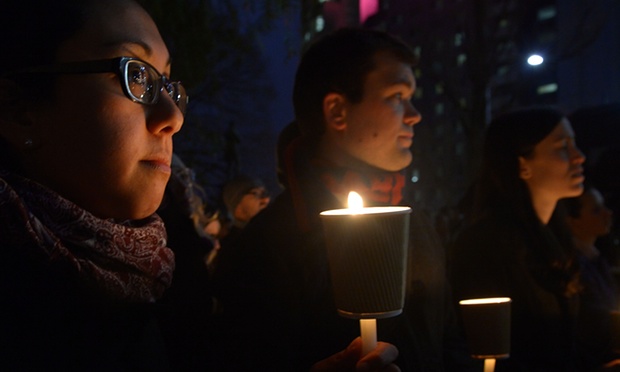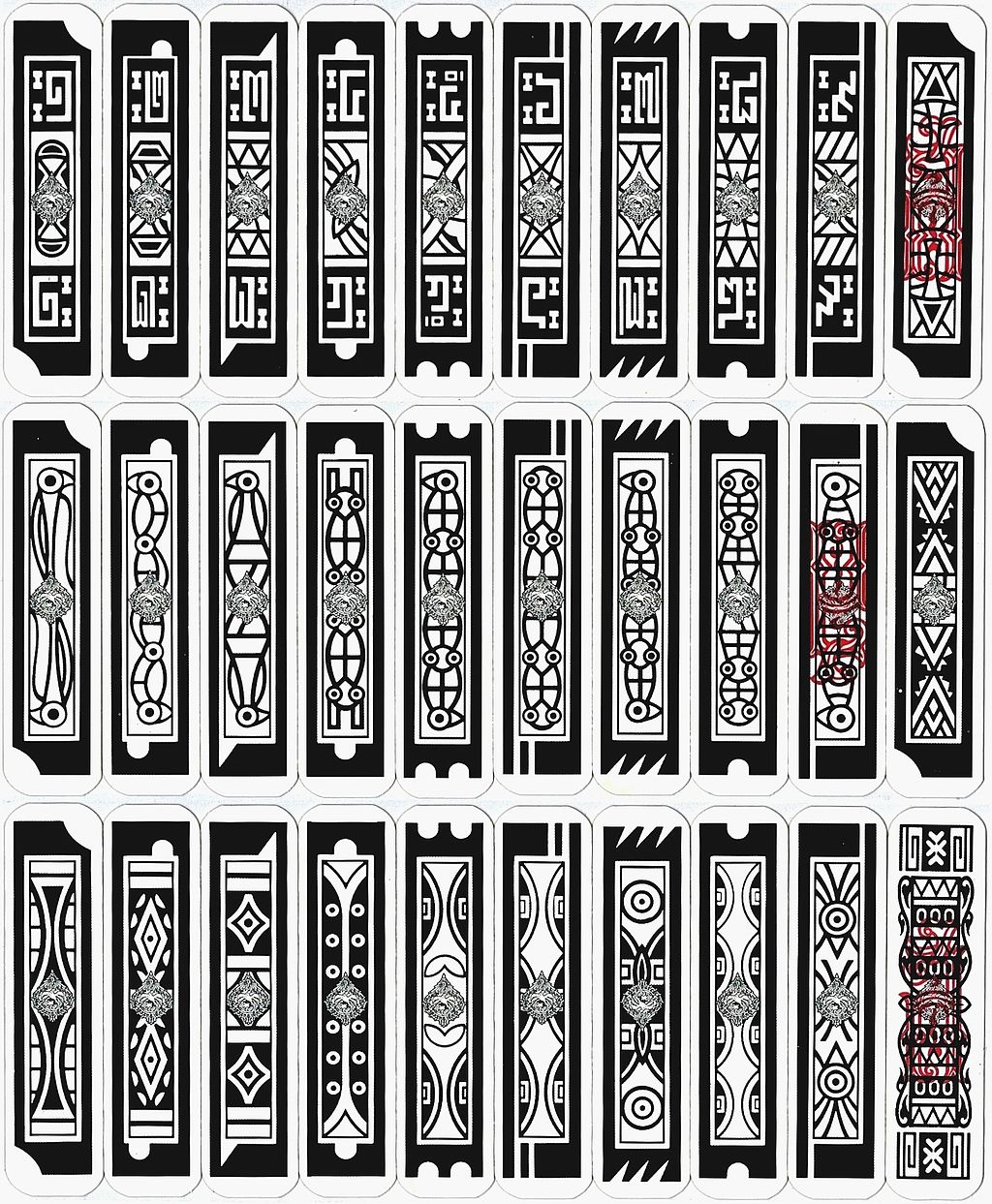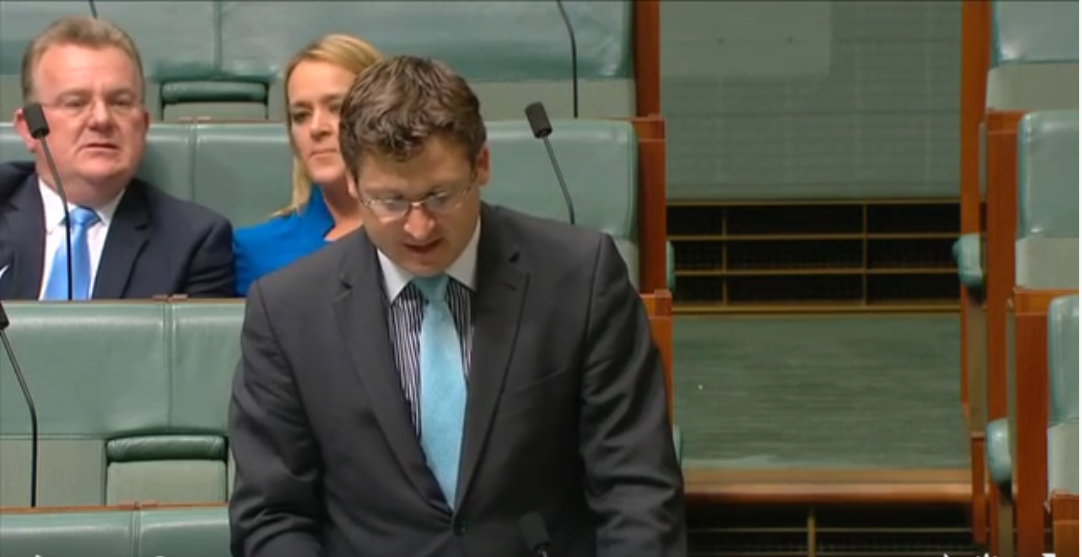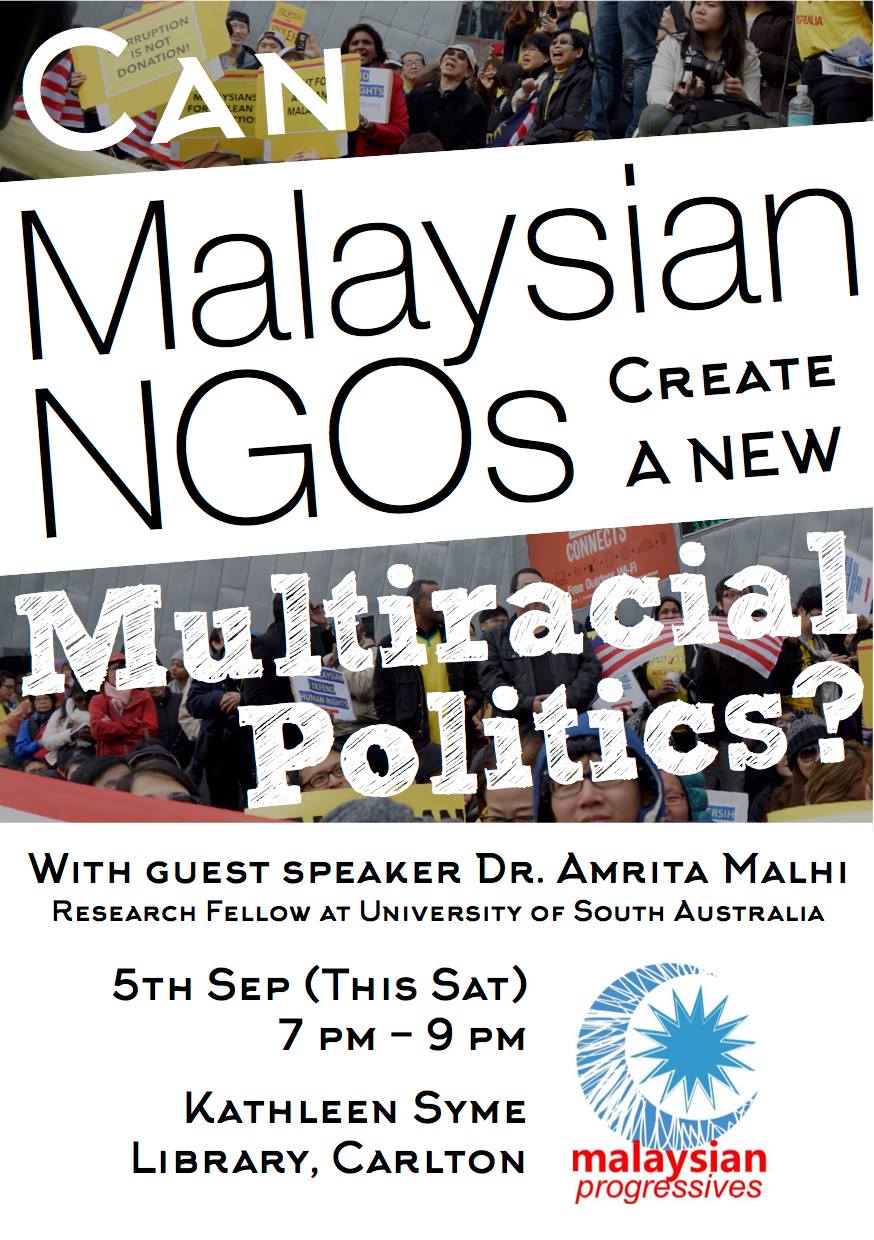Events in Paris are already provoking new debates about whether trust in multiculturalism is justified.’ A 2015 refugee vigil in Sydney, Australia. Photograph: Mal Fairclough/AAP
That’s small-l liberal debates around tolerance, multiculturalism and interculturalism , within the context of Western liberal democracies.
I think it is worthwhile even if they do seem limited in their capacity to change things — after all, the adoption of multiculturalism and the Racial Discrimination Act 40 years ago has underpinned better lives for non-white people in Australia.
And no, I don’t think anyone should be called a pseudo-white person for participating in debates about where multiculturalism is going now.
Here is an op-ed I published on this in the The Guardian.
Showing solidarity with migrants is more than ‘comfort’ for white people
Tolerance isn’t the most ‘radical’ approach to racism. So why do many non-white Australians participate in movements that promote it as a solution?
Tony Abbott’s prime ministership sparked furious debate about Australia’s commitment to multiculturalism, including a push to wind back 18c, slights against Indigenous “lifestyle choices”, and questions about Australian Muslims’ loyalty to the nation.
As this period now fades into ancient history, Australia’s politicians have begun to re-invest in the multicultural narrative, a prescient move given the polarised debate after recent events in Paris. Earlier this month, the three major political parties made sure to send a high-level representative to address a conference organised by the Federation of Ethnic Communities Councils of Australia (Fecca).
The mood at the conference was palpable: after years of defensiveness, it was now time to formulate a new national agenda for multicultural policy, practice and public advocacy.








